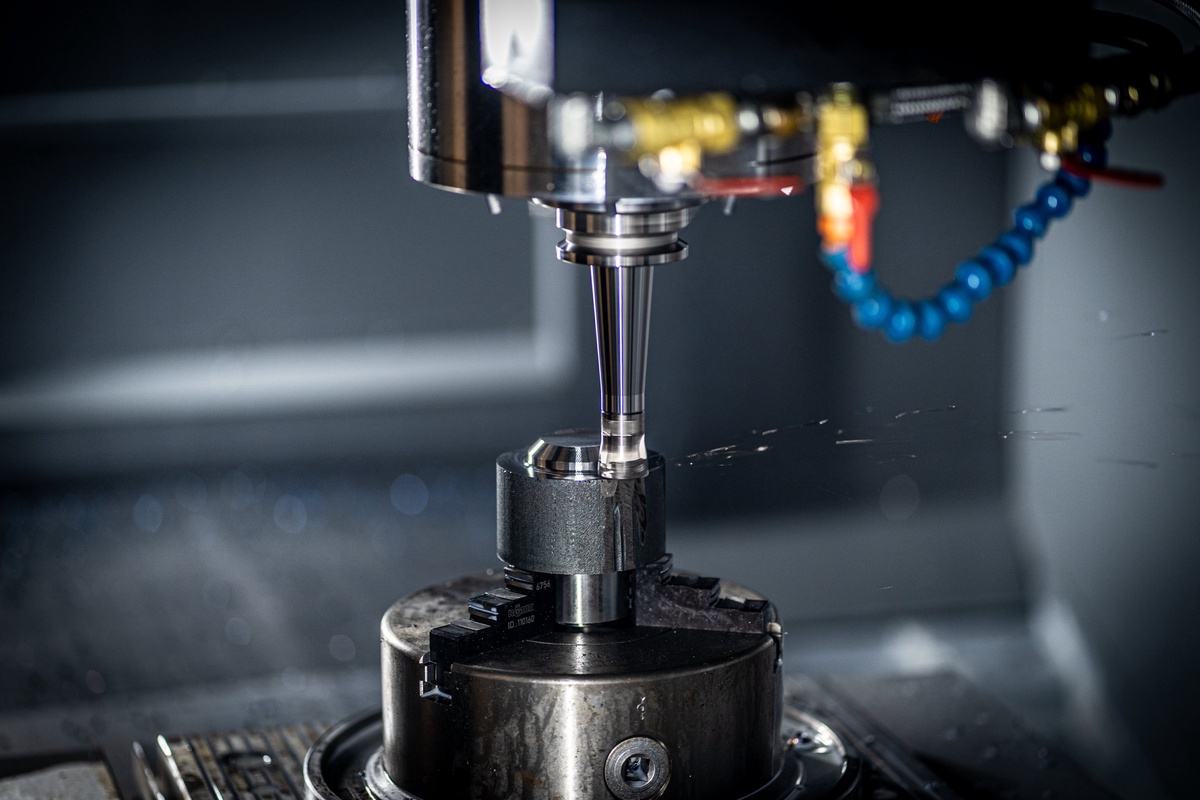In manufacturing, Computer Numerical Control (CNC) machining is a cornerstone technology, driving precision, efficiency, and versatility in the production of a wide array of components and products.
This article takes a detailed look at CNC machining, exploring how this advanced technology has become integral to modern manufacturing processes.
Understanding CNC Machining
At its core, CNC machining involves the use of computerized systems to control and automate machine tools. This departure from traditional manual machining methods has ushered in a new era of precision and repeatability.
CNC machines are equipped with numerical control systems that interpret computer-aided design (CAD) models and convert them into precise, tangible components through a subtractive manufacturing process.
- Precision At Its Core
One of the standout features of CNC machining is its unparalleled precision. The ability to achieve intricate and complex designs with exceptional accuracy makes CNC machining indispensable in industries where precision is paramount, such as aerospace, medical, and automotive.
CNC machines operate with incredible repeatability, ensuring that each iteration of a component is virtually identical, meeting the stringent tolerances demanded by modern manufacturing.
- Versatility In Materials
CNC machining showcases remarkable versatility when it comes to the range of materials it can handle. From metals like aluminum, steel, and titanium to various plastics and composites, CNC machines can shape and carve materials with ease.
This adaptability makes CNC machining suitable for a diverse array of industries, catering to the specific material requirements of different applications.
- Rapid Prototyping And Iterative Design
The agility offered by CNC machining is a game-changer in the realm of prototyping and product development. Design iterations can be quickly translated into physical prototypes, allowing engineers and designers to assess form, fit, and function rapidly.
This accelerated prototyping process facilitates quicker design refinement cycles, reducing time-to-market for new products and innovations.
- Complex Geometries And Intricate Designs
Traditional machining methods often struggle with the production of intricate and complex geometries. CNC machining, however, excels in this regard. The ability to precisely control the movement of cutting tools in multiple axes enables the creation of intricate designs and shapes that would be challenging or impossible to achieve with manual methods.
This capability is particularly advantageous in industries where intricate parts are integral, such as in medical implants or aerospace components.
- High Efficiency And Production Rates
CNC machining is synonymous with efficiency and high production rates. Once programmed, CNC machines can operate continuously, with minimal downtime between production runs. This efficiency is further enhanced by the ability to automate tool changes and adjust cutting parameters swiftly.
As a result, manufacturers can meet demanding production schedules without compromising on precision or quality.
- Reducing Human Error And Enhancing Safety
Automation inherent in CNC machining significantly reduces the reliance on manual labor, minimizing the potential for human error. This not only contributes to the precision of the manufacturing process but also enhances workplace safety.
CNC machines operate with consistent accuracy, mitigating the risks associated with manual machining, especially when dealing with high-speed cutting tools or heavy machinery.
- Scalability And Mass Production
CNC machining seamlessly accommodates scalability, making it suitable for both small-scale production runs and large-scale mass production.
Whether producing a limited quantity of specialized components or manufacturing thousands of identical parts, CNC machines maintain the same level of precision and repeatability. This scalability is a key factor in the widespread adoption of CNC machining across various industries.
- Cost-Effective Manufacturing
While the initial investment in CNC machines and their programming can be substantial, the long-term cost-effectiveness is evident. The high efficiency, reduced material wastage, and minimal need for manual labor contribute to lower per-unit production costs.
Additionally, the ability to rapidly prototype and iterate designs can lead to significant savings in product development cycles.
- Integration With CAD/CAM Software
The seamless integration of CNC machines with Computer-Aided Design (CAD) and Computer-Aided Manufacturing (CAM) software is a pivotal aspect of modern CNC machining.
Design specifications are translated into machine-readable code through CAM software, providing precise instructions for the CNC machine to execute. This digital integration enhances the efficiency and accuracy of the entire manufacturing process.
- Sustainability And Material Efficiency
In an era where sustainability is a key focus across industries, CNC machining contributes to material efficiency. The precision of CNC machines minimizes material wastage during the manufacturing process, reducing environmental impact.
Additionally, the ability to recycle and reuse materials further aligns CNC machining with sustainable manufacturing practices.
- Continuous Advancements In CNC Technology
The field of CNC machining is not static; it continues to evolve with technological advancements. The introduction of multi-axis machining, advanced cutting tools, and real-time monitoring systems further enhances the capabilities of CNC machines.
These innovations continue to push the boundaries of what is achievable, opening up new possibilities for manufacturers seeking higher levels of precision and efficiency.
Manufacturing The Modern World
CNC machining is a technological marvel that has reshaped the landscape of modern manufacturing. From precision engineering to rapid prototyping, the versatility and efficiency of CNC machines have made them indispensable in a wide range of industries.
As technology continues to advance, so too will the capabilities of CNC machining, ensuring that it remains a driving force in the pursuit of excellence and innovation in manufacturing processes worldwide.


No comments yet